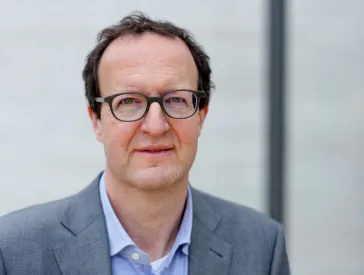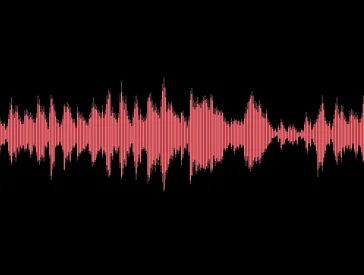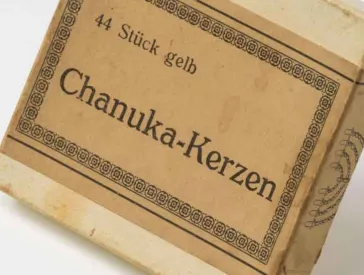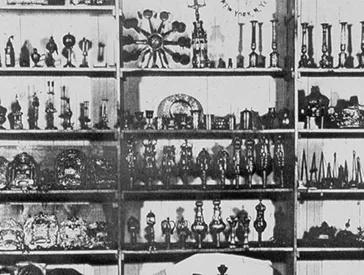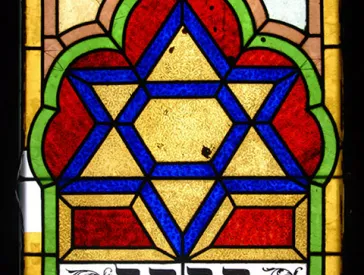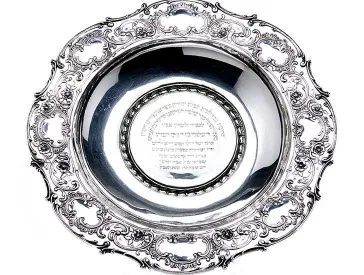The Jewish Object: Judaica Collection
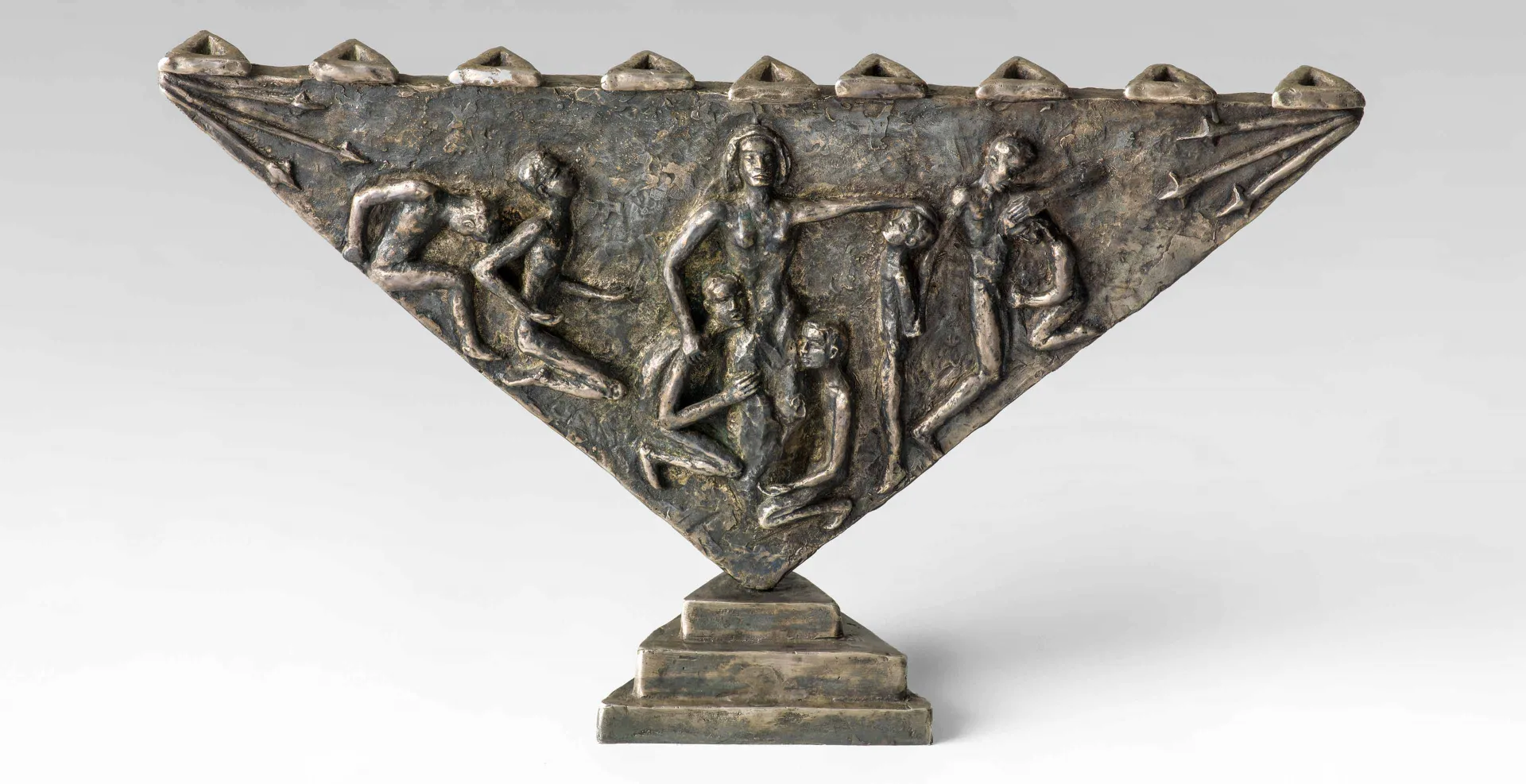
Chanukah candelabra by Erna Weill, USA, according to signature 1936; Jewish Museum Berlin, photo: Roman März. Further information about the object can be found in our online collections (in German).
The museum’s collection includes a diverse range of three-dimensional objects, from simple everyday objects and mass-produced commodities to unique items that showcase sophisticated artistic design. In the context of a Jewish museum, these objects become “Jewish objects” be it through the self-definition of their previous owners or curatorial perspectives.
Scope and Range
Through our collection of religious objects, Jewish history and culture are documented by means of both ritual and everyday items. Biographical, socio-historical, and material dimensions are central to these objects and to their interpretation. Many of them articulate the complexity and diversity of German-Jewish belonging and experience.
An important part of the collection is the private collection of Münster cantor Zwi Sofer, which the Berlin Museum acquired in 1981. Recent scholarly findings on this were published as part of a provenance research project from 2017 to 2019.
Who is Zvi Sofer?
Zvi Sofer (1911–1980), cantor, and collector, born in Podolia, 1929 Aliyah, academic studies in Vienna, in 1938 re-emigrated to Palestine, from 1959 dedication to the revival of Jewish communities in Germany
Chronological and Geographical Framework
From the eighteenth century onwards, German-Jewish ceremonial objects demonstrate the ongoing interaction between Jewish religious life and surrounding cultures. Handcrafted items reflect shared artistic styles, materials and techniques, while still serving distinctively Jewish religious purposes.
The collection includes finely crafted silverwork from the eighteenth century, as well as objects made from simpler materials in the nineteenth and twentieth centuries. Together, they illustrate the influence of everyday life and cultural exchange on religious artistic expression.
Window of a prayer room with the Star of David of the Israelitische Vereinigung von Lichtenberg und Umgegend e. V. in the Frankfurter Allee, 1905; Jewish Museum Berlin, donation, mediated by the Verein für Berliner Stadtmission (Association for Berlin City Mission)
How can I conduct research using the museum’s archive, collections, and library?
Our Reading Room is open to the public. You can also research using our library’s holdings and some of our collection’s holdings online. To view additional holdings, please contact the responsible curators.
How can I donate objects, photographs, and documents to the museum?
Do you own materials related to Jewish culture and history in Germany that could be of interest to us? We would be delighted to hear from you!
I would like to depict or borrow an object from your collections. Who should I contact?
Your contacts for photo permissions are Valeska Wolfgram and Birgit Maurer-Porat (T +49 (0)30 259 93 433, email: fotodoku@jmberlin.de). Please note that the processing time for requests can take between 4 and 6 weeks.
Loan requests must always be made nine months before the beginning of the exhibition. Requests must be made in writing to the director (Hetty Berg, Stiftung Jüdisches Museum Berlin, Lindenstr. 9-14, 10969 Berlin).
Contact
Michal S. Friedlander
Curator of Judaica and Applied Arts
T +49 (0)30 259 93 511
judaica@jmberlin.de
- Address
Jewish Museum Berlin
Lindenstraße 9–14
10969 Berlin
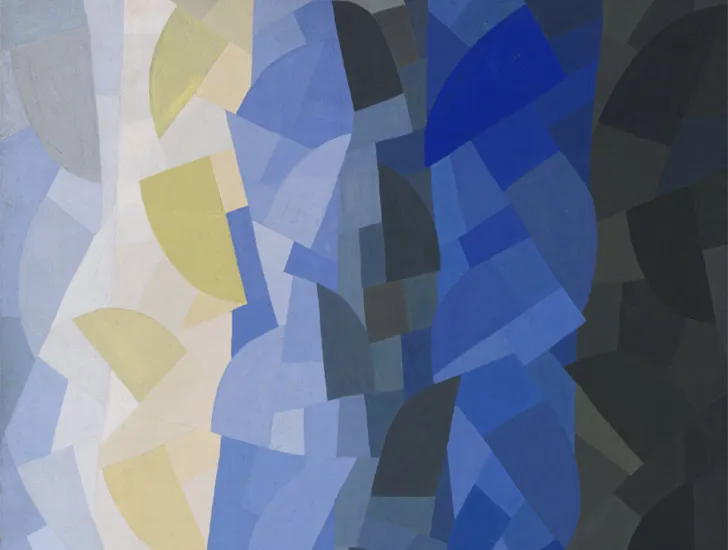
Our Collection
An overview
- The objects we collect: information & FAQ
- Search our collection: a growing number of items from our digitized collection are available to view and search online (in German)
Details
- Archive: documenting Jewish life
- Audiovisual Media: historic sound recordings, family films and video art
- Library: books and more about Jewish art, culture, and history
- Fine Arts: visual culture of German-Jewish history and the present day
- Photography: from the beginnings of photography to the present day
- The Jewish Object: Material Culture: objects and textiles for nonreligious purposes
- The Jewish Object: Applied Arts: objects produced by German-Jewish craftspeople and companies
- Current page: The Jewish Object: Judaica: ritual and everyday items for religious purposes
Digital Content
- Online Showcase: digital presentation of our collection holdings, video projects, and more
- Object in Showcase: stories from our collection
See also
- The History of Our Collection: learn about the initial inspiration and transition to today's museum
- Our Collection Management: Protection, preservation, and documentation
- Sources of Collection Holdings: in publications of the Berlin museum (1978 to 1995)
- Provenance Research: unveiling the origins of our objects
- Conservation: how to presperve our objects for future generations
